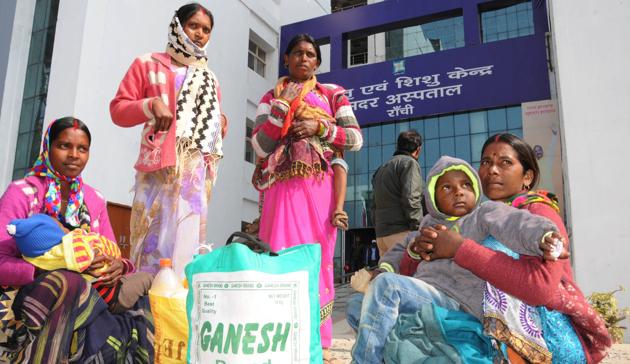All mothers and newborns must get equitable health care
Respectful maternity care and the ‘birth companions’, are among the key strategies to ensure that women have a positive pregnancy and delivery experience.
Health care is not simply about treating disease. It is about promoting a complete state of physical, mental, and social well being. This requires a comprehensive approach, spanning a continuum of care from pregnancy and childhood, to adolescence, and finally adulthood. Nowhere is this more important than for the health of girls and women, that is all too often neglected.

Over the past few years, India has achieved substantial gains in health for our mothers and newborns. Between 2000 and 2015, India’s Maternal Mortality Ratio declined by 77% from 556 per 1 lakh live births in 2000 to 130 per 1 lakh live births in 2015. During the same period, India’s newborn mortality dropped by 44% from 1.2 million newborn deaths to under 7 lakh annually. Still we have a long way to go in terms of ‘Ensuring healthy lives and promote well being for all at all ages’. India is committed to reduce maternal mortality ratio to less than 70 per 1,00,000 live births and to reduce neonatal mortality to at least as low as 12 per thousand live births by 2030 under Goal-3 of Sustainable Development Goals.
Achieving reductions in maternal and newborn mortality begins with interventions well before the time of conception and delivery. Adolescence is a time of tremendous growth, and, unfortunately, girls can enter womanhood with nutritional deficiencies that put pregnancies at risk. In 2016, over half of our adolescent girls were anaemic. India aims to reduce this figure by making iron and folic acid tablets available to adolescent girls at health facilities. Our national adolescent health programme also has a key focus area on nutrition, as part of a strategy to comprehensively address health needs of adolescents in five key areas.
Our recent success can also be attributed to the fact that more women are seeking care during pregnancy and delivery than ever before. Launched in 2016, Pradhan Mantri Surakshit Matritva Abhiyaan ensures comprehensive and quality antenatal care, free of cost, to all pregnant women. There are also other schemes in place that are specifically designed to encourage more women to opt for institutional delivery. Because of these efforts, more women are also choosing to deliver in health facilities, as opposed to in the home, which allows them to access the skilled care that is necessary to bring babies safely into the world. During 2015/16, 79% of women delivered in a health facility, compared to 39% in 2005/06.
Yet access to care alone does not guarantee a positive outcome. Care for pregnant women must be of high quality and delivered with respect and dignity. Highly trained doctors, nurses, and other health workers, who adhere to quality standards mandated by the government, are critical to minimising risk of pregnancy complications and stillbirths. Other schemes have been launched in recent years to improve the quality of and strengthen labour room practices to achieve improved health outcomes for mothers and newborns. Respectful maternity care, and the ‘birth companion’, are other key strategies of these efforts to ensure that women have a positive pregnancy and delivery experience.
Once babies are born, an array of care is required to ensure that they are warm, nourished, and protected from infection. Postnatal care for mothers and babies begins immediately after birth, typically in the health facility. This is a critical and often neglected point in the continuum of care, since the risk of illness and death of babies is highest in the period immediately after birth. Increased focus is required to ensure that every mother and newborn is reached at home in the first few days and weeks of life with life-saving interventions through home-based newborn care. Of course, as children grow older, many other interventions are provided, including immunisation and micronutrient supplementation, such as Vitamin A.
In December 2018, the Government of India hosted the Partnership for Maternal, Newborn and Child Health (PMNCH) Forum in Delhi. This provided an opportunity to reflect on our successes and the great need to do more for our women and children. We must make universal health coverage a reality because everyone has a right to health without fear of financial constraints. We must ensure that health care is of high quality, is equitable for all, and is provided with dignity. We must acknowledge that health care spans a continuum, recognising not only treatment, but also the value of prevention, healthy behaviours, and the impact of socioeconomic and environmental factors on health. We owe it to our future generations.
Anupriya Patel is Union minister of state, health and family welfare
The views expressed are personal



